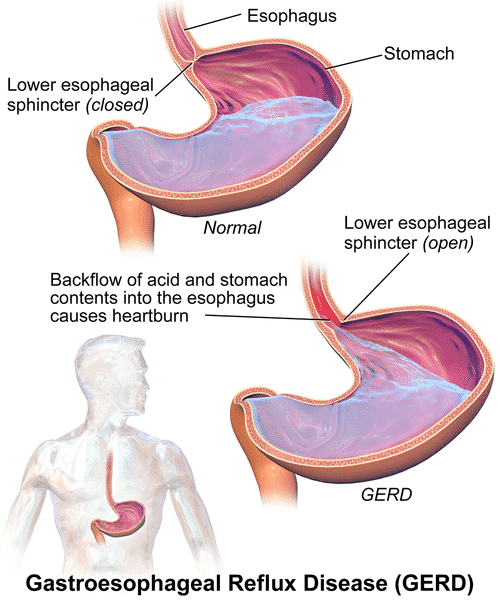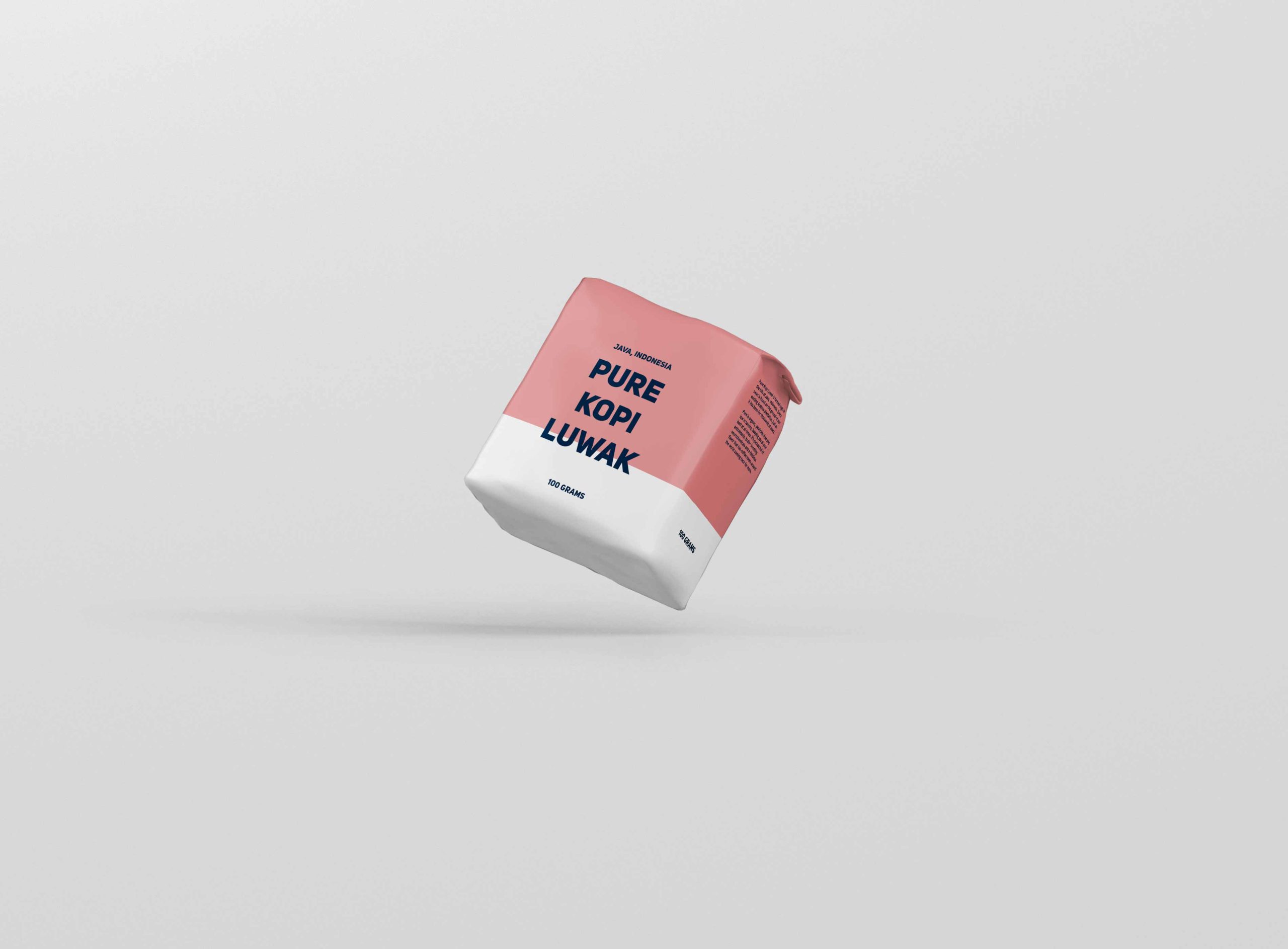What is heartburn and what causes it?
Most of us have felt heartburn at one point in our life. It’s the burning feeling in the chest, which hits us like a rock behind the sternum or breastbone. Despite its name, though, heartburn isn’t normally related to the heart or to any sort of heart condition. It’s actually a problem related to the upper gastrointestinal (GI) system, a misleading name at best.
Symptoms of Heartburn
Some of the symptoms of heartburn are a warm or burning sensation in the upper chest area, often accompanied by different levels of pain, regurgitation of food and stomach acid, and an acrid, sour taste in the back of the mouth. In some cases, the person suffering heartburn will cough liberally as well. For a more in-depth understanding of heartburn, this is an excellent medical article for you.
Causes of Heartburn
The main cause of heartburn is a process called “acid reflux”, also known by its more technical name “Gastroesophageal Reflux” (GER, for short). Acid reflux is a process in which food and stomach acid comes back up from the stomach and out through the esophagus, the tube that connects the mouth with the stomach. Acid reflux is normally avoided thanks to a series of muscles shaped like a ring, which surround the lower end of the esophagus (the lower esophagus sphincter), which contract and tighten around the esophagus to close it tight and avoid stomach acids reaching the mouth and throat (see image below). However, when something causes those muscles to relax, or when there is too much pressure inside the stomach, the esophagus doesn’t seal well enough. This poor seal allows the contents of the stomach to go up towards the mouth, causing the stinging feeling we know as heartburn.
This is the most common cause of heartburn, though another less common cause is having an abnormal gastroesophageal flap valve. The gastroesophageal flap valve is designed to ensure a one-way flow of traffic between the esophagus and the stomach, though people with an abnormal or dysfunctional valve lack this set of checks and balances. As a result, stomach acid can get back up into the esophagus and throat, causing heartburn.

Heartburn occurs when stomach acid travels back up the esophagus toward the throat. Image: Bruce Blaus.
Acids in the Stomach
As the name suggests, stomach acid is highly acidic. On the pH scale, 7 is neutral (water), below 7 is acidic and above 7 is basic/alkaline. Stomach acid has the exceptionally low pH of 1, making it significantly more acidic than other substances like vinegar. To put this in perspective, a pH of 1 implies a concentration of protons (the things that make acids burn) that is 1 million times higher than that of water. Such remarkably high acidity, alongside the group of degrading enzymes present in other stomach juices, is one of the primary reasons why the stomach is so good at breaking down food. How else could it break down an entire beef steak in less than an hour?
An obvious question comes up here: why doesn’t the stomach suffer the effects of its own contents? The answer is simple: the stomach’s inner surface is lined with a special type of cells that shield it from the acids and enzymes that break down our food. The main problem of acid reflux is that the esophagus isn’t designed to withstand this sort of attack, so when stomach acid passes through it, it gets irritated and may even erode, which is the main cause of the pain we feel. If someone experiences heartburn frequently, it may be evidence of a more serious condition called Gastroesophageal reflux disease, or GERD.
Heartburn affects millions of people every day, all over the world. It is a very common affection which is more frequent after meals, especially after eating certain types of foods or drinking certain types of beverages. There are a number of risk factors associated with acid reflux-induced heartburn. Among these risk factors are:
- Stress
- Obesity
- Alcohol consumption
- Smoking
- Pregnancy
- Eating a high-fat diet
- Reclining or lying down (especially on the right side) shortly after eating
- Certain foods and beverages
One of the more common beverages linked to heartburn is coffee. With that said, the current research is quite contradictory. Many reports point to a significant link between coffee and heartburn, while others point to no relation at all.
So what’s the truth?
What is coffee heartburn?
The main reason coffee has been so closely connected with heartburn is because so many patients have complained of suffering from acid reflux and heartburn shortly after drinking coffee. Many studies have tried to determine the validity of this relationship, but as we said a moment ago, the data is highly contradictory.
This review article from 1999 sums up the reported literature relating coffee consumption with the function of the gastrointestinal system, and suggests that coffee does indeed promote gastroesophageal reflux (a.k.a. acid reflux, the main cause for heartburn). It also states that coffee stimulates colonic motor activity only 4 minutes after consumption, which is the reason many people have to go to the bathroom shortly after drinking a hot cup of joe (as many say: coffee makes you poop!).
However, this 2013 article presents the results of a large-scale study whose aim was to determine if there really was a relationship between coffee consumption and the four major disorders of the upper gastrointestinal system, including heartburn (in that paper it’s named reflux esophagitis). Over 8,000 patients were studied, and the conclusion was that coffee consumption is not significantly related to the onset of either acid reflux or heartburn.
This doesn’t clear things up very much, but it does give us a good foundation to work from. With that said, if you believe coffee is causing your heartburn, we highly recommend keeping a diary of all the things you eat and drink so that you can be more accurate in what you link to its onset. If you still think it’s the coffee, here are some reasons why you might be right.
Why does coffee cause heartburn?
Reason #1: More Stomach Acid
This article shows that the caffeine in coffee stimulates and increases the proton secretion of gastric cells (the cells in the stomach that produce or secrete stomach acid). What this means is that when you drink coffee, its caffeine content prompts your stomach to produce more stomach acid than normal, which may be one of the causes of coffee heartburn. Solution: Drink a health coffee like kopi luwak, which has less caffeine than regular coffee and, most people agree, a far superior taste.
Reason #2: It Takes Longer To Empty The Stomach
Other studies have shown that drinking coffee causes your stomach to take more time to empty. When the stomach is full of food and stomach acid for such a long period of time, there’s a greater chance that that acid will find its way back up the esophagus, causing coffee heartburn.
Reason #3: A Weakened Sphincter
This article shows a relationship between coffee and the force with which the gastroesophageal sphincter—the traffic police that ensures one-way traffic from esophagus to stomach, not the opposite—closes. The researchers concluded that after you drink coffee, the sphincters close less forcefully, making acid reflux and coffee heartburn more likely.
Reason #4: Most (But Not All) Coffee Is Highly Acidic
Yet another article suggests that coffee heartburn is caused by coffee’s acidity. Coffee is naturally acidic (unless you’re drinking a low-acid coffee), and it’s been proven many times that acidic drinks irritate the stomach and induce further production of stomach acid, which, in turn, increase the risk of heartburn.
Those are just four reasons linking coffee with heartburn, but none of them offer great solutions. Should we simply stop drinking coffee?
How to prevent coffee heartburn
Now that we have a clearer picture of the cause of heartburn, and why coffee leads to heartburn, we’re better equipped to seek ways to avoid it. The first line of defense against heartburn is making lifestyle changes. If you reduce the other risk factors related to heartburn, you reduce the chances that you’ll get heartburn when you drink coffee. Some of the recommended lifestyle changes experts recommend include:
- Smoke less or quit smoking altogether
- Lose weight (if applicable)
- When lying down, rest your head on a pillow instead of flat down
- When lying down, lie on your left side instead of your right
- Reduce alcohol consumption
- Don’t eat too much late at night, and avoid heavy dinners
- Practice yoga
- Reduce stress
Three tips for avoiding coffee heartburn
Tip #1: Avoid drinking coffee just before lying down
When you lie down the contents of the stomach tend to rise towards the esophagus, so avoid lying down when you drink coffee to reduce the risk of acid reflux and heartburn.
Tip #2: Avoid drinking coffee right after a heavy, high-fat meal
Like caffeine, high-fat meals increase stomach acid secretion, so if you have both at the same time, you greatly increase your odds of getting heartburn.
Tip #3: Switch to a low-caffeine coffee
As mentioned above, the high levels of caffeine in coffee may be a core reasons for heartburn. Drinking a low-caffeine coffee like kopi luwak has been proven to reduce heartburn.
If you still get heartburn, depending on the seriousness of the case, you may benefit from over-the-counter medications like antacids to neutralize the acid reflux. Antacids are a really quick way to alleviate the symptoms of heartburn, though they won’t prevent you from getting it again next time. In the worst cases, there are other medications that counteract the acid secretion by blocking the body’s proton pumps, though those should only be taken after consulting with a medical professional.
Do different roasting or brewing methods affect coffee heartburn?
No.
As this 2003 article shows, changing your roasting method from something like conduction roasting to another roasting method doesn’t affect either the frequency of coffee heartburn or its intensity. It’s just yet another urban myth proven wrong by science.
Does fermenting coffee impact heartburn?
Yes.
If you read our posts on fermented coffee and coffee kombucha, you’ll see that fermentation transforms green coffee beans and brewed coffee in different ways. In particular, the microorganisms that ferment coffee beans eat away at those beans’ caffeine content, causing the caffeine of the resulting cup of coffee to drop significantly.
One perfect example is kopi luwak, which has half the caffeine of regular coffee. Kopi luwak, if you aren’t already familiar with it, is also known as civet coffee or cat poop coffee, and for good reason. It’s a very special kind of fermented, low-acid coffee produced from coffee beans that have been eaten, digested and pooped out by a wild species of mammal called the Asian palm civet cat. We’ve covered the health benefits of kopi luwak extensively, covering everything from its protection against kidney stones and osteoporosis to the long-lasting energy boost you get from a unique chemical reaction totally unrelated to caffeine.
So, want to ditch the coffee heartburn? Replace your current coffee with Pure, the healthiest coffee in the world, and watch it disappear.

